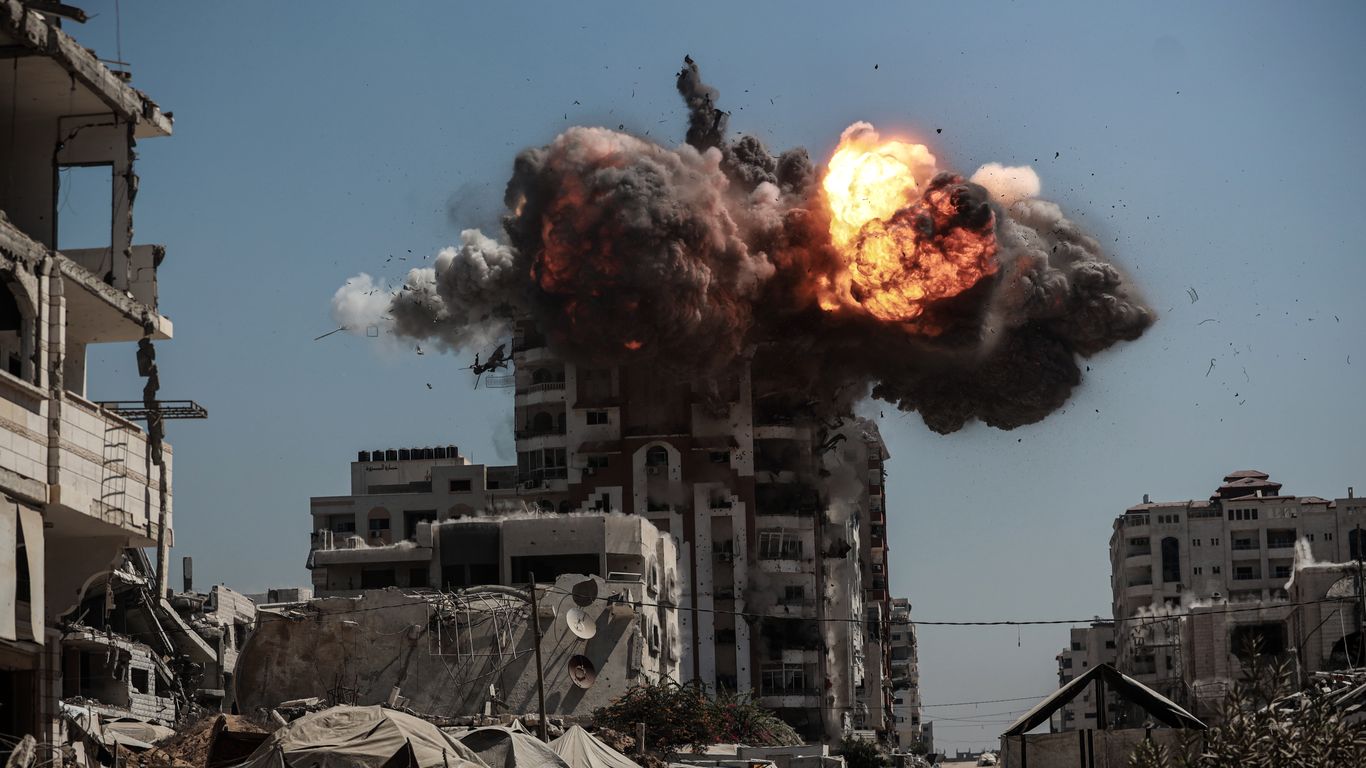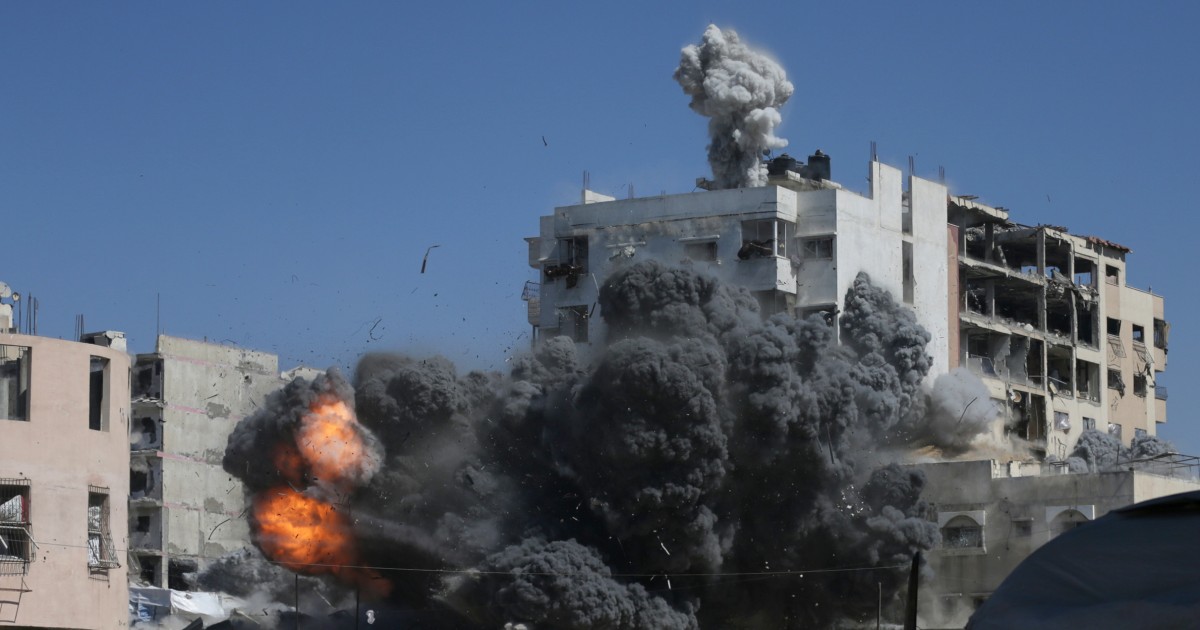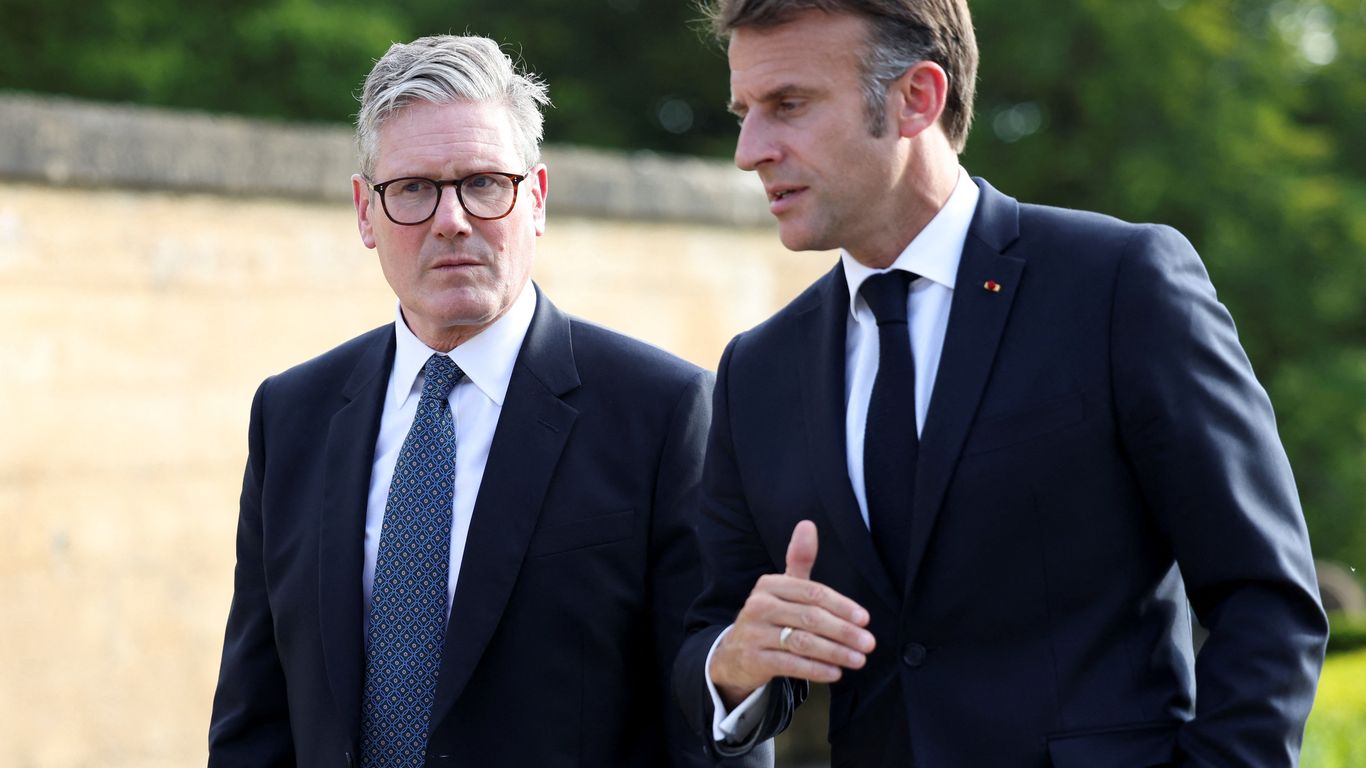The Push for Recognition of a Palestinian State Gains Momentum
Introduction
In recent years, the push for recognition of a Palestinian state has gained momentum, with France and Saudi Arabia leading the charge at the United Nations General Assembly. This push has been fueled by the ongoing conflict in the Gaza Strip and the increasing urgency for a two-state solution to the Israeli-Palestinian conflict. As a result, the pressure is on Israel to respond and take action.
Possible Retaliation from Israel
So, how could Israel retaliate to these efforts for recognition of a Palestinian state? One possible response could be increased settlement expansion in the West Bank, which would further complicate any potential peace negotiations. Another option could be to ramp up military operations in the Gaza Strip, as seen in the 2014 conflict. This could potentially lead to further violence and human rights abuses.
The Impact of Retaliation
Any form of retaliation from Israel would not only escalate tensions in the region, but it could also damage its international standing. The continued occupation and potential annexation of Palestinian territories would only further isolate Israel from the international community and hinder any potential for a peaceful resolution. It is crucial for all parties involved to prioritize finding a two-state solution and working towards sustainable peace.
About the Organizations Mentioned
United Nations General Assembly
The **United Nations General Assembly (UNGA)** is the main deliberative, policymaking, and representative organ of the United Nations, comprising all 193 member states, each with equal voting rights[1][3][6]. Established in 1945 following the UN Charter, the UNGA provides a unique global forum for multilateral discussion on a broad spectrum of international issues including peace and security, development, human rights, disarmament, and international law[1][4][7]. Its inaugural session took place in January 1946 with 51 founding nations, and it now meets annually in September at the UN headquarters in New York, with sessions running through January and occasional special meetings as needed[3][4]. The Assembly’s key functions include debating and making recommendations on international cooperation and conflict resolution, approving the UN budget, electing non-permanent members to the Security Council, appointing the Secretary-General (based on Security Council recommendations), and overseeing various subsidiary bodies[1][3][7]. It plays a critical role in shaping global norms and policies, such as adopting the Sustainable Development Goals (SDGs) in 2015, which guide international development efforts through 2030[4]. Notably, the UNGA operates on a principle of sovereign equality, where all nations—small or large—have one vote, fostering inclusive dialogue. It elects a President annually who manages debates and procedural rules; for example, the 80th session was presided over by Annalena Baerbock, former German Foreign Minister[1][6]. The Assembly’s decisions on important matters like peace and security require a two-thirds majority, while other issues pass by simple majority[9]. For business and technology sectors, the UNGA’s influence extends to setting international regulatory frameworks, encouraging sustainable development, and facilitating cooperation on global challenges such as climate change, digital governance, and innovation policy. Its role as a platform for consensus-building helps align diverse national interests toward commo
France
France is a leading global economic and political entity rather than a conventional organization. It is a semi-presidential republic with Paris as its capital and largest economic and cultural center[2]. Economically, France ranks as the world’s ninth-largest economy by purchasing power parity and the second largest in the EU, maintaining a diversified and robust industrial and service sector. It is a major manufacturing hub in Europe, the third largest after Germany and Italy, and a top agricultural producer within the EU[2]. Historically, France has been a major player in international affairs as a founding member of the European Union, OECD, G7, and G20, reflecting its enduring influence in both global governance and economic policy[2]. Its economy features significant government involvement and a social market structure that balances free market capitalism with social welfare policies[2]. France also ranks highly on innovation indexes, placing 12th globally in 2024, reflecting strong investments in education, research, and technology[2][5]. Key achievements include substantial progress toward environmental sustainability. Since 1990, France has reduced its greenhouse gas emissions by 35%, aligning with the Paris Agreement goals. It leads in ecological protection, notably in its vast maritime zones and overseas territories[1]. The country is actively transforming its economy by promoting renewable energy, electrification of transport, and sustainable food consumption to meet ambitious climate targets by 2030 and carbon neutrality by 2050[1]. Currently, France’s economy is experiencing moderate growth, with a projected GDP increase around 0.7-0.8% in 2025 amid fiscal adjustments and global uncertainties. Private investment is subdued but expected to recover by 2026, driven by easing monetary policy and stronger domestic demand[3][4][6]. The government is focused on reforms to stimulate digital innovation, simplify regulations, and enhance investment, especially in innovative small and medium enterprises[6]. Notable aspects include France’s highly educated workforce, world-class universities, and strong research institution
Saudi Arabia
Saudi Arabia is a unitary absolute monarchy governed by the Al Saud royal family, with King Salman as the head of state and Crown Prince Mohammed bin Salman holding significant executive power, including serving as Prime Minister since 2022[1][3][8]. The country’s governance structure is based on Islamic law (Sharia), with the Quran considered the constitution, and royal decrees shaping legislation[2]. The King oversees the Council of Ministers, which manages executive functions such as foreign policy, defense, finance, and education[1][2]. Historically, Saudi Arabia was founded by King Abdulaziz Al Saud in the early 20th century, uniting disparate tribes and regions under a single kingdom. Succession traditionally stays within the family, selected by consensus or the Allegiance Council[3]. The kingdom’s political system blends tribal traditions with religious authority, closely aligning with Wahhabi religious leaders for social and political control[3]. Economically, Saudi Arabia is known for its vast oil reserves, with Saudi Aramco being the world’s largest oil company. In recent years, the kingdom has embarked on ambitious reforms under Vision 2030, a strategic plan to diversify its economy beyond oil, attract foreign investment, and develop sectors like tourism and technology[4]. Vision 2030 promotes privatization, corporate governance improvements, and mega-projects such as NEOM, a futuristic economic zone[4]. The Public Investment Fund (PIF), chaired by the Crown Prince, plays a key role in these initiatives by investing domestically and internationally, although it has faced criticism related to human rights concerns and controversial development practices[6]. Saudi Arabia’s legal and business environment is evolving, with reforms in corporate governance and increasing inclusion of women in leadership roles[2][4]. The government permits full foreign ownership in most sectors except strategic ones like oil exploration[9]. Despite economic modernization, the kingdom remains an absolute monarchy with limited political freedoms and human rights challenges[7]. This comple


















